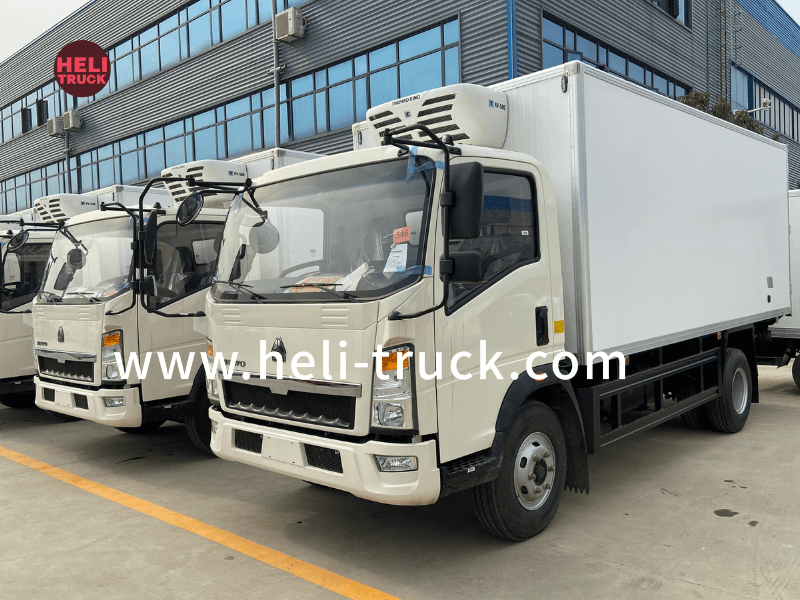Introduction:
Waste management is a critical aspect of modern society, with garbage trucks playing a crucial role in the collection and disposal of waste materials. Over the years, advancements in technology have revolutionized the way garbage trucks operate, making waste disposal more efficient, environmentally friendly, and cost-effective. This article will explore the various technologies employed in garbage truck waste disposal, highlighting their benefits and impact on the environment and public health.
1. Evolution of Garbage Trucks:
Garbage trucks have come a long way since their inception in the early 20th century. Initially, waste collection was a labor-intensive and unhygienic process, with workers manually loading trash onto horse-drawn carts. The introduction of motorized garbage trucks in the 1920s revolutionized waste collection, allowing for faster and more efficient disposal of waste materials.
2. Types of Garbage Trucks:
There are several types of garbage trucks used for waste disposal, each designed for specific purposes and waste collection needs. The most common types of garbage trucks include:
- Rear Loader Trucks: These trucks feature a hydraulic compactor at the rear, which compresses the waste as it is collected. Rear loader trucks are commonly used for residential waste collection.
- Front Loader Trucks: Front loader trucks are equipped with a hydraulic arm at the front that lifts and empties large waste bins into the truck's container. Affordable vacuum trucks for sale are ideal for commercial and industrial waste collection.
- Side Loader Trucks: Side loader trucks have a mechanical arm on the side that lifts and empties waste bins into the truck. These trucks are commonly used in urban areas with tight spaces.
- Automated Trucks: Automated garbage trucks feature robotic arms that lift and empty waste bins into the truck without the need for manual labor. These trucks are highly efficient and reduce the risk of worker injuries.
3. Waste Disposal Technologies:
Modern garbage trucks are equipped with a range of technologies that enhance their efficiency and environmental performance. Some of the key waste disposal technologies used in garbage trucks include:
- Compaction Systems: Garbage trucks are equipped with hydraulic compactors that compress the waste to maximize the truck's capacity and reduce the number of trips to the disposal site. Compaction systems help reduce fuel consumption and greenhouse gas emissions.
- GPS Tracking: Many garbage trucks are equipped with GPS tracking systems that allow operators to monitor the truck's location, routes, and performance in real-time. GPS tracking helps optimize route planning and scheduling, reducing fuel consumption and operating costs.
- RFID Technology: Radio Frequency Identification (RFID) technology is used to track and manage waste bins, enabling operators to monitor collection frequencies, track waste volumes, and optimize collection routes. RFID technology improves operational efficiency and reduces collection costs.
- Alternative Fuel Systems: Some garbage trucks are powered by alternative fuels such as compressed natural gas (CNG) or electric batteries. These vehicles produce lower emissions and are more environmentally friendly than traditional diesel-powered trucks.
- Automated Collection Systems: Automated garbage trucks feature robotic arms that lift and empty waste bins, reducing the need for manual labor and improving worker safety. Automated collection systems are highly efficient and can significantly increase collection speeds.
4. Environmental Impact:
The adoption of advanced waste disposal technologies in garbage trucks has a positive impact on the environment. By reducing fuel consumption, greenhouse gas emissions, and waste volumes, these technologies help mitigate the environmental impact of waste disposal. Additionally, the use of alternative fuels and electric-powered garbage trucks reduces air pollution and dependence on fossil fuels, contributing to a cleaner and healthier environment.
5. Benefits of Advanced Waste Disposal Technologies:
The integration of advanced waste disposal technologies in garbage trucks offers a range of benefits, including:

- Increased Efficiency: Waste disposal technologies such as compaction systems and GPS tracking improve operational efficiency, reducing collection times and costs.
- Environmental Sustainability: Alternative fuel systems and automated collection systems help reduce greenhouse gas emissions and promote environmental sustainability.
- Improved Public Health: Advanced waste disposal technologies minimize the risk of exposure to harmful waste materials, protecting public health and sanitation.
- Cost-Effectiveness: By reducing fuel consumption, maintenance costs, and labor expenses, waste disposal technologies help municipalities and waste management companies save money in the long run.
Conclusion:
Garbage truck waste disposal technology has evolved significantly over the years, with modern trucks equipped with a range of advanced technologies to enhance efficiency, environmental performance, and public health. The adoption of compaction systems, GPS tracking, RFID technology, alternative fuel systems, and automated collection systems has transformed the waste disposal industry, making it more sustainable and cost-effective. As we continue to innovate and invest in waste disposal technologies, we can create a cleaner, healthier, and more sustainable future for generations to come.
